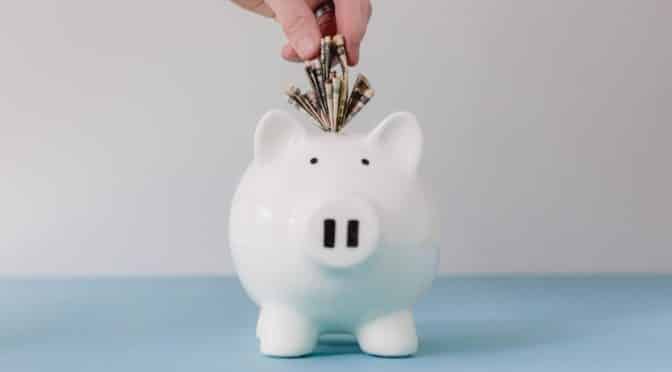Let's Get Started
You'll get the most value from financial planning if your specific goals and needs match a firm's philosophy and services. Let's learn more about each other.
Ready to Get Started?


Suppose you have the fortunate problem of deciding how you want to allocate a retirement portfolio of $1 million (or something like it). Is it appropriate to keep some of that money in cash, or something cash-like (e.g. a savings account)? How much should be cash and how much should still be invested in the stock market or other areas?
I recently talked with a prospect with just that “problem”; let’s call her “Mary”. Mary and her husband, both retired, have a significant nest egg built up in their IRAs, about $750,000. They also own their house with no mortgage, and they have been saving cash in a bank account, lots of it, about $200,000. That struck me as a lot of cash, I’m sure it does to you, too, once you think about it.
Update: We have a new updated blog post and video covering options you have to invest and save your extra cash. Click here for more.
Whenever someone has saved for years (or really done anything for years), they have a purpose, explicit or hidden. Mary has what I will call a “negative” purpose for her cash—insurance against the possible downturn in her stocks/bonds in the IRAs. If the stock and bond markets go south, Mary is counting on her cash to be available to pay for living expenses. This seems like a negative purpose to me because she’s not hoping to gain something or do something positive with the money, it’s just there in case things go wrong.
Mary feels pretty strongly about this purpose. She knows that money sitting in a savings account is not earning much interest at all, and she wishes it would earn more, yet the fear of a market downturn is the primary motivator.
Keeping a lot of cash on hand is empowering, it can make you feel secure and ready for what the world throws at you. Having some cash available is always good, but it’s the amount that counts.
In Mary’s case, although the purpose for her $200,000 in cash was clear, the amount didn’t line up well with her goals overall. She and her husband had a number of retirement goals and hoarding cash really wasn’t in the plan. I could sense the misalignment in talking with Mary—she wanted to know if $200,000 was too much in a savings account, and maybe how to get a better return on the interest (that came up a couple times).
We needed to take a step back, think a little about the overall objectives of their financial plan, and then find how cash could play its rightful place in the plan.
One goal that almost every retiree has in their plan (even if it’s not a formal financial plan) is keeping some money on hand for emergency spending: a broken furnace, medical issue, or car repair. This is a key function of savings/checking accounts and other ways to keep cash handy; we sometimes need a large amount of liquid reserves to pay a bill. When people are younger, we target that emergency savings for guarding against a job loss, but even in retirement there’s a need to have some savings readily available.
In talking with Mary, and hearing how their living expenses are pretty modest, we agreed that having about $20,000 in a savings account should cover almost any emergency need. Especially given that they have stocks and bonds they could sell if necessary, this seemed like an adequate amount even to our risk-averse Mary.
After making sure Mary was comfortable with a true emergency savings amount, we had to decide what they could do with the rest of the cash she had saved, around $180,000! Remember, she and her husband have fully-invested IRAs with mutual funds and bonds.
Mary’s caught at this point, since she’s concerned about the safety of her overall portfolio but also wants to earn more on her money than what a savings account provides. There are alternatives, though, in what I consider to be an increasing order of risk:
The key thing you need to consider is how these investments will fit in with your overall portfolio. In Mary’s case, she is starting to open up to parking her cash in something a little better returning than a savings account, but it can take time to change. A good option may be to start with CDs, and then move into bonds over time, since the fear of losing money is a powerful one and can be hard to change.
Are you wondering how to invest a chunk of cash you have sitting in a savings account? Start with your overall financial plan as your guide and reach out if you need help getting on the right track. Book your free consultation!